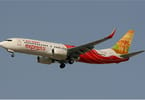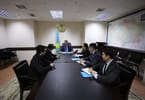Shortage of funds is not new for public bodies in eastern Africa, but one of the more recent additions to bureaucracy and regulation, the Civil Aviation Safety and Security Oversight Agency (CASSOA) should, for all practical purposes, have been properly funded at the time of formation and not become a begging case so soon after starting work.
It was learned that proposals have recently been made by the agency that every single passenger using any of the east African airports and aerodromes should be levied around US$70 cents through a surcharge on its tickets to finance the East African Community’s CASSOA administration now depending on subsidies from the member states and subventions by the national civil aviation authorities.
The proposal is said to be at an early stage and must be agreed upon between the respective finance ministries of the EAC, while stakeholders, already complaining about the regulatory regime being too expensive and making flying across the region unaffordable for most, will also have to say something about these plans when stakeholder consultations go underway.
In such a forum, it will undoubtedly be suggested, if not outright demanded by the aviation fraternity and other stakeholders, to first streamline civil aviation authorities operations across the region, pool resources, and, finally, do away with the multiplicity of duplications required by the national bodies for airlines wishing to operate across the national borders and set up operational bases beyond their home country, allegedly maintained to protect individual fiefdoms and spheres of influence.
However, all of them suffer at one level or another of a shortage of funds and generally profess to be in need of more trained and competent personnel, which the sharing of resources could sufficiently address.
Meanwhile, as an example of how duplication is now the order of the day in the EAC, Fly 540 now has operations in Kenya, Uganda, and Tanzania but had to form separate limited liability companies in each country and then required separate air service licenses, separate AOCs (air operator certificates), and, finally, had to base accountable managers in each of the presently separate companies, leading to very much higher cost, which is, of course, reflected through the ticket prices.
Previously, the fiefdom attitude in the region has prevented a greater integration, and while the CASSOA inception was generally hailed as a step forward, it is high time to remove remaining non-tariff barriers and kick the various aviation administrations and regulators into shape by dictate of their political masters and no longer leave it to the individual regulatory bodies to come up with some long overdue common sense decisions.
WHAT TO TAKE AWAY FROM THIS ARTICLE:
- Previously, the fiefdom attitude in the region has prevented a greater integration, and while the CASSOA inception was generally hailed as a step forward, it is high time to remove remaining non-tariff barriers and kick the various aviation administrations and regulators into shape by dictate of their political masters and no longer leave it to the individual regulatory bodies to come up with some long overdue common sense decisions.
- Meanwhile, as an example of how duplication is now the order of the day in the EAC, Fly 540 now has operations in Kenya, Uganda, and Tanzania but had to form separate limited liability companies in each country and then required separate air service licenses, separate AOCs (air operator certificates), and, finally, had to base accountable managers in each of the presently separate companies, leading to very much higher cost, which is, of course, reflected through the ticket prices.
- In such a forum, it will undoubtedly be suggested, if not outright demanded by the aviation fraternity and other stakeholders, to first streamline civil aviation authorities operations across the region, pool resources, and, finally, do away with the multiplicity of duplications required by the national bodies for airlines wishing to operate across the national borders and set up operational bases beyond their home country, allegedly maintained to protect individual fiefdoms and spheres of influence.






















